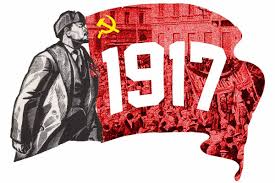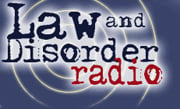Defend J20: First Protestors
Last January, at Donald Trumps Inauguration, over 230 people”some protesters, some not”were trapped and arrested by police. Federal prosecutors charged them with a crime that actually doesnt exist in DC: felony rioting. Armed with secret warrants, prosecutors then probed deeply into the defendants personal lives.
Charges were dropped for some arrestees, including journalists and legal observers. Over 200, however, saw their charges increased to felony rioting, felony incitement to riot, conspiracy to riot, and property-damage crimes related to broken windows. Each defendant is facing over 60 years in prison.
Prosecutors obtained warrants focused on anti-Trump organizers. Warrants sought a list of visitors to a protest-related website and the Facebook friends and related communications of two organizers, the host of a coalition Facebook page, and those who had liked that page.
This prosecution follows a change in local law enforcements response to protest that we covered years ago on Law and Disorder. The mass arrests and harsh charges are precisely what new DC policies were designed to avoid. A 2002 mass-arrest and subsequent lawsuit by the Partnership for Civil Justice resulted in the District paying over $10 million in settlements and changing its crowd control policies.
Trials for the inauguration protesters begin mid-November and are expected to continue for a year.
Guest – Yael Bromberg, Yael is a supervising attorney and teaching fellow with the Institute for Public Representation at the Civil Rights Clinic of Georgetown University Law Center. defendj20resistance.org
—-
October Song: Bolshevik Triump, Communist Tragedy 1917-1924

This year marks the 100th anniversary of the Russian Revolution of October, 1917. The revolution changed the course of history and determined world politics internationally and in the United States of America for most of the 20th century, until finally, under the unrelenting onslaught of the west and principally the USA, the revolution was overthrown in 1991 when capitalism was restored to that country.
Before the revolution, Russian was a feudal monarchy, headed up by a czar in a country where most of the population were peasants working the land under near slave-like conditions.
World War I started in 1914 and Russia allied with France and Great Britain against Germany and other countries. It was a war for foreign markets, resources, and colonies. By 1917, 30 million people have been killed. In one week alone 250,000 soldiers died.
The Russian revolution was nearly bloodless and nonviolent. The first thing the revolutionary government did was to end their countrys participation in the war, which ultimately ended the war.
The second thing they did was to redistribute the land to the peasants who worked it. Then they nationalized industry under control of the workers in the plants. Thus, the 1% of the Russian elite were dispossessed and the 99% took control of the institutions of their country and ran them through councils of workers and peasants and soldiers, which had been organized prior to the revolution and which were led by socialists.
The Russian revolution inspired the hopes of humankind throughout the industrial and under-developed colonial world. The peasants were given land, women gained equal rights and the right to vote and to get an abortion. Homosexualty was made legal. Minority rights were guaranteed. Education, the arts, and culture received government support. For a period Russia was the most democratic country on the planet.
We speak today with history professor Paul LeBlanc about the Russian revolution and the lessons it teaches for social change activists in America today.
Guest – Professor Paul LeBlanc is the author of the just published book October Song: Bolshevik Triumph, Communist Tragedy, 1917-1924. He is the author of a number of widely read studies including Lenin and the Revolutionary Party and Marx, Lenin, and the Revolutionary Experience. He teaches at Laroche college in Pittsburgh.



